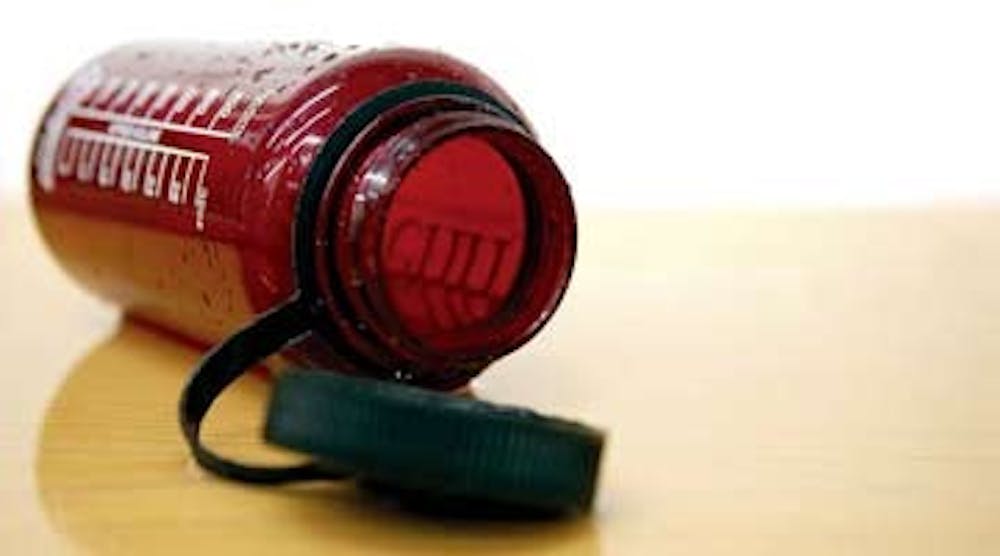
Sipping water out of that Nalgene bottle might not be so good for you.
Numerous studies, including one at the University of Cincinnati earlier this year, show that traces of the toxic substance bisphenol-A, commonly called BPA, are released from Nalgene bottles' "unbreakable" plastic.
Cincinnati researchers found that the bottles leaked much larger quantities of BPA when heated.
Last week, the National Toxicology Program of the Department of Health and Human Services stated that there is "some concern" that even low levels of BPA may be harmful.
BPA exposure has been linked to hormonal and neurological changes, early puberty and breast and prostate cancers.
Nalgene remains "confident" that its water bottles that contain BPA are safe for use, according to a company statement. Nalgene "only uses FDA-compliant materials and resins," the statement said.
BPA is found in reusable water bottles like Nalgenes, as well as baby bottles, liners of food cans, dental sealants and other household items.
While the amount of BPA necessary to be harmful to humans is unclear, large retailers like Wal-Mart and Toys R Us have announced they will stop selling products containing BPA, and Nalgene has said it will phase out BPA use in its water bottles.
Although the U.S. Food and Drug Administration has yet to put restrictions on the use of BPA, Canada has proposed a ban on the use of the chemical in baby bottles.
However, the FDA is being investigated for its BPA policy, which relies upon only two studies, "both of which are funded by the American Plastics Council, and one of which has not been published or peer reviewed," according to a letter by U.S. Rep. John Dingell (D-Mich.), chairman of the energy and commerce committee.
"There may be federal legislation introduced to ban the use of BPA in many applications," said Mike Schade, a spokesman for the Center for Health, Environment and Justice and co-author of a recent study on BPA in baby bottles.
Nalgene users can find out if their bottles contain BPA by looking at the bottom of the bottle. Bottles with the number seven inside the recycle symbol contain BPA.
"I haven't thrown my Nalgene away but I'm probably going to stop using it until this is all sorted out" said Engineering sophomore Mallory Jensen.
The Daily Pennsylvanian is an independent, student-run newspaper. Please consider making a donation to support the coverage that shapes the University. Your generosity ensures a future of strong journalism at Penn.
DonatePlease note All comments are eligible for publication in The Daily Pennsylvanian.







